Down! Set! Smoke!
Whether for pain or pleasure, widespread smoking of marijuana has been a part of Canada's three-down game for decades
Advertisement
Read this article for free:
or
Already have an account? Log in here »
To continue reading, please subscribe:
Monthly Digital Subscription
$19 $0 for the first 4 weeks*
- Enjoy unlimited reading on winnipegfreepress.com
- Read the E-Edition, our digital replica newspaper
- Access News Break, our award-winning app
- Play interactive puzzles
*No charge for four weeks then billed as $19 plus GST every four weeks. Offer only available to new and qualified returning subscribers. Cancel any time.
Read unlimited articles for free today:
or
Already have an account? Log in here »
Hey there, time traveller!
This article was published 12/10/2018 (2278 days ago), so information in it may no longer be current.
For many years, the Canadian Football League has turned mostly a blind eye when it comes to its players and the consumption of marijuana.
The league doesn’t currently test for cannabis and, as recent history suggests, nor does it seem to care all that much when its players are arrested with the drug.
Just ask Duron Carter who, while a member of the Saskatchewan Roughriders, was busted not once but twice by Canadian airport security trying to board a plane with cannabis.
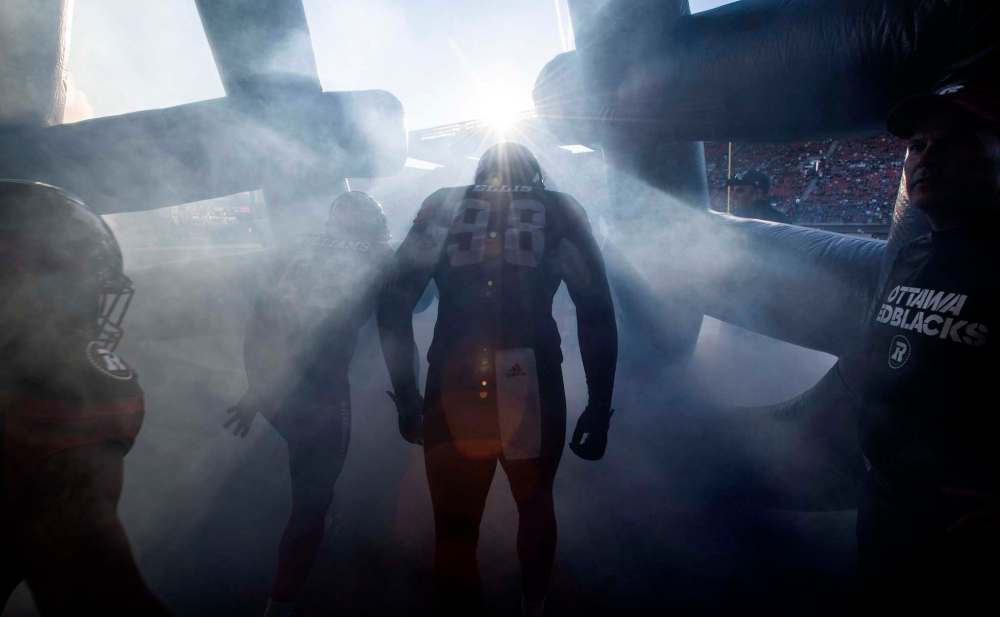
Carter, who was granted a total discharge after pleading guilty to marijuana possession in Winnipeg but is still awaiting trial for similar charges in Saskatoon, received no supplementary discipline from the CFL. He was even sheltered from reporters during CFL week in Winnipeg last March, shortly after the incidents were made public; the league looked a bit foolish when Carter later appeared on one of its interview shows.
“This is an interesting, if not confusing, time in society with the changing landscape on marijuana laws. There is some part of this process that is being confused by the fact that we are on the doorstep of a law that is going to change,” CFL commissioner Randy Ambrosie told 3downnation at the time.
“We’ve been speaking to other organizations and we’ve been trying to figure out where are we going to go with this? If the law of the land is that marijuana is legal, we’re going to have to reflect on this.”
Recreational marijuana use will be legal in Canada beginning Wednesday, making it just the second country in the world to implement a nationwide permit for those of age interested in recreational consumption.
Given the CFL’s lax cannabis rules what, if anything then, is expected to change for the league once legalization sets in? The answer is, not much.
“Like many businesses and employers, we are working to assess the potential impact of the legalization of marijuana later this month,” a CFL spokesman told the Free Press in an email.
“This is uncharted territory, of course, but at this point it appears the effect on the CFL will be minimal.”
The fact that little will change for the CFL once federal legislation kicks in isn’t all that surprising, even as other industries move quickly to implement rules to protect themselves. For the league to suddenly regulate recreational marijuana use would be to ignore the longstanding relationship between the CFL and pot.
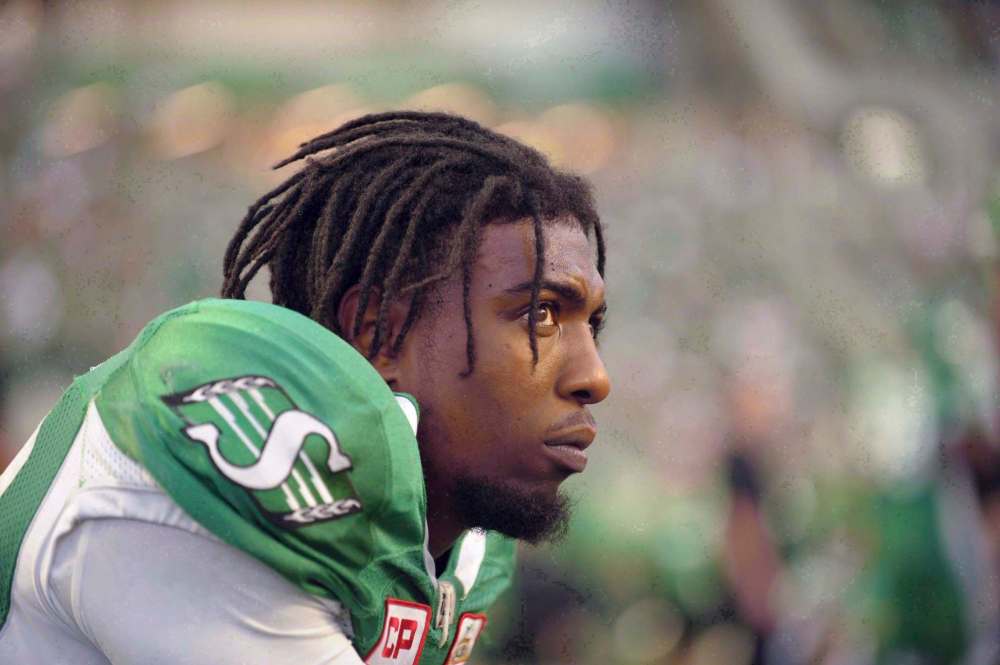
For instance, the CFL has long been considered a haven for players in the NFL who have been outlawed after failing drug tests. While the NFL hands down hefty suspensions to players caught with cannabis in their system, the CFL does not. Canada has instead opened its doors for many players that have been punished south of the border, in some cases multiple times.
Running back Ricky Williams was one of the CFL’s more notable cases. Four years after leading the NFL in rushing as a member of the Miami Dolphins, he was loaned to Toronto for the 2006 season while serving a season-long suspension for failing the NFL’s substance policy for a fourth time. Interestingly, the infraction was rumoured to be because of another herb Williams used as holistic medicine, and not from marijuana.
Williams returned to the NFL the following year, and shortly after, the CFL created a new policy — known informally as the Ricky Williams rule — that prevented a team from signing a player serving a suspension in the NFL. The rule wasn’t seen so much as a crackdown against marijuana as it was a sign of respect for the penalties handed down by the NFL.
In fact, although the rule kicked in for the start of the 2007 season, it didn’t apply to players already in the CFL, including tackle Bernard Williams, a known pot smoker who played for years in Toronto. Williams failed almost as many drug tests (15) as games he played with the Philadelphia Eagles (16) before finally being banned from the NFL.
Marijuana use, though certainly not encouraged or permitted by CFL front offices, has long been accepted within locker rooms. Many players, including some of the league’s brightest stars, are known to light up on occasion.
“Pretty much everyone, minus a handful of players on any given team, have at least tried it and many do it regularly,” said a current player, who requested anonymity.
Jonathan Hefney, a two-time CFL all-star who played six seasons for Winnipeg, Calgary and Montreal before suffering a career-ending injury with the Alouettes midway through the 2015 campaign, said weed use is rampant.
“I guarantee there’s 90 to 95 per cent of those boys smoking weed out there,” said Hefney who, three years after his injury, still requires multiple surgeries to regain full use of his right arm.
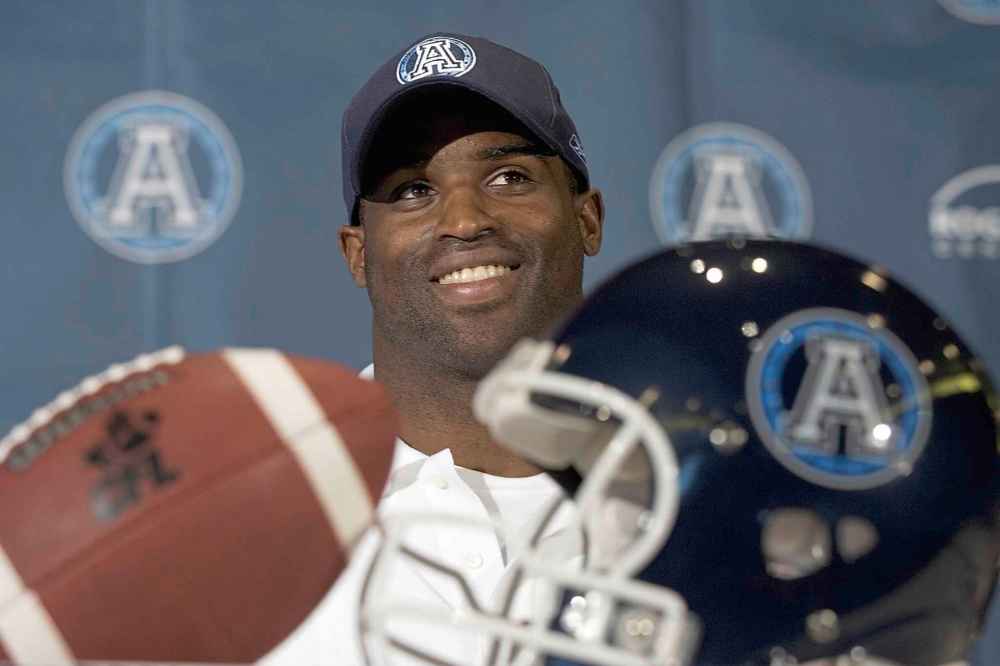
Hefney is best known for his years in Winnipeg, where he was a proud member of the Bombers’ Swaggerville defence. Considered among his peers to be the ultimate team player, and arguably one of the CFL’s most feared hitters, he was also a habitual smoker during his playing days.
“I’d get up at about 6:30, 7 o’clock, and I’d smoke one while making breakfast,” he said from his North Carolina home. “When I’m on my way to practice I might smoke a little bit before and then put it out, make sure I smell at least decent going in. By the time I got to the stadium…. I was ready to go for the whole practice.”
Hefney didn’t grow up smoking cannabis, and he doesn’t advocate for young players to experiment with the drug during their formative football years. It wasn’t until he went undrafted in the NFL, then was signed to the Philadelphia Eagles’ practice squad that he was persuaded to take a puff.
“For me, damn, it slowed everything down and I could learn better. My coach in college used to always tell me, he said, ‘One day you’re going to get to smoking and it’s going to slow your ass all the way down,’ because I was hyper. Everything I did was quick — boom! Boom! I’d just be moving around — and I couldn’t sit still because I had ADHD,” said Hefney.
“It just calms me down and after I can go into a meeting room and sit there and just listen, focus in.”
Head coach Mike Kelly, who was known for giving his players a long leash, led the team when Hefney joined the Bombers in 2009. The culture included several players indulging in marijuana, most often after games.
But Hefney said there were definitely times when work and pleasure sometimes intertwined.
“I know our meeting room used to have a good smell to it,” he said. “Say when we do the whole-team room, you know who the smokers are because they’re all in the same section. Everybody just did their thing and it was on the low. I don’t know if it’s all a secret still but the players, they know who smokes or not.”
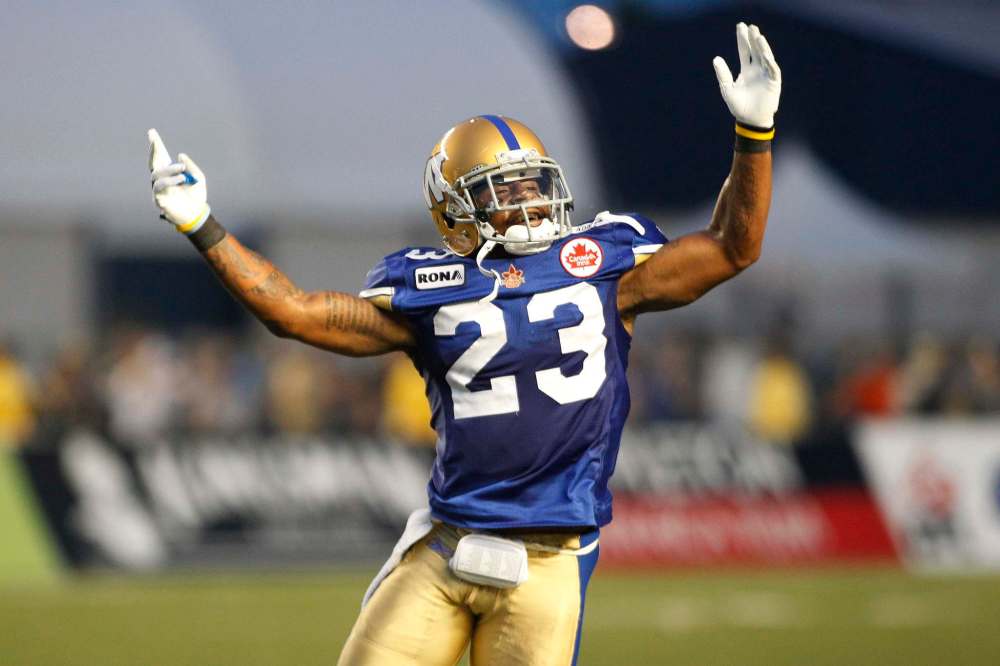
Hefney was and continues to be a recreational pot user and takes a measure of pride in the fact it has prevented him from turning to prescription drugs to manage the pain he still feels from his playing days.
During those years on the football field, Hefney said apart from taking something here or there for a nagging headache, only once — after a game against the Roughriders when he was left reeling from a hit — did he ever need anything stronger.
Pills were never appealing; Hefney has seen enough players get hooked on painkillers to validate his commitment to marijuana.
“Get yourself a nice little cone, stuff it real good and you’ll be good. And if that one doesn’t work, smoke another one and then you’ll be good, I promise,” he said. “I smoked after games all the time. The only other thing I ever had to do was a take a shot one time when I got hurt, during a game in Saskatchewan. I was hurting that bad so they gave me a shot and it kind of numbed it. Other than that I was just smoking.”
It’s important to note that there is a clear distinction between recreational and medicinal marijuana use in the CFL, at least when it comes to how the league officially governs its use.
“We expect all of our employees, those working in our business offices as well as those who compete on the field, to act responsibly and in compliance with the law. That obviously includes not coming to work impaired from any substance. We have faith our employees will display that sort of common sense,” a league spokesman said.
“Medical marijuana has been legal for several years. The use of any medication is a matter between physician and patient. The league would not interfere in that relationship.”
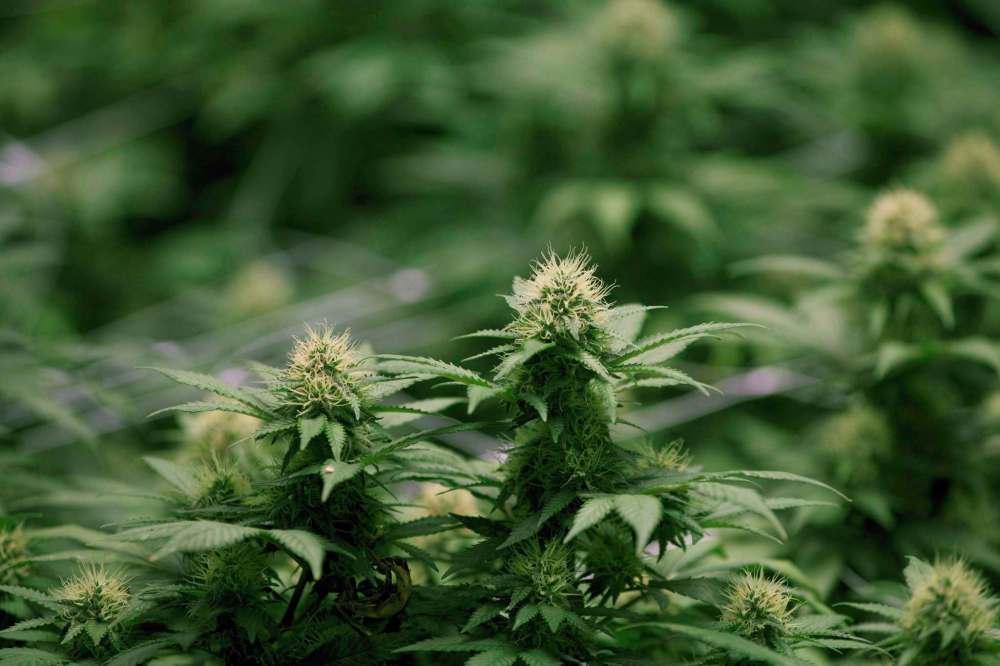
Hefney didn’t want to make any blanket predictions for what might happen in the CFL after Wednesday’s legalization. But he said he hopes that the league will look into its medical benefits, even if it’s just to educate players on options for treating pain.
“Players are going to smoke regardless. There isn’t much they can do besides maybe give them a medical card or something,” he said. “I really don’t know what you can do.”
While the CFL has yet to commit one way or another to pursuing research on the benefits of cannabis for medical purposes, there’s a group of former players that will soon take part in an observational study, testing marijuana products to help with aches and pains.
Earlier this year, the CFL Alumni Association, which isn’t directly connected to the league, entered into an agreement with MedReleaf, a leading medical cannabis producer and researcher in North America. MedReleaf, along with Cannascribe, another cannabis consulting firm, will be facilitating an observational study that will include about 50 retired players.
To bring credibility to their cause, the CFLAA has already put together a cannabis advisory board, which is chaired by former Nova Scotia premier Darrell Dexter, now a vice-chair at Global Public Affairs, Canada’s largest privately held government-relations firm. The advisory board was put in place to make sure the CFLAA is getting good legal advice, good public-policy advice and also medical and travel advice for players involved in the study. Along with Dexter, the board includes a doctor and lawyer, and some former CFL players.
“The reality is, there actually isn’t a lot of great empirical data on medical cannabis because it’s been illegal for so long,” said Rod Elliot, who heads up the cannabis sector for Global Public Affairs. Elliot hopes the study will unveil some real medical benefits for treating short- and longer-term pain and dispel some of the myths around using the drug.
“I think a lot of people think with medical cannabis you got to go into your garage, put on a Jimmy Hendrix record and you’re going to get ‘high,’” Elliot said.
“What we’re really talking about is primarily CBD (cannabidiol oil) products, which, hopefully, this study will show to have some benefits for treatments of some of these conditions. It’s really about overcoming some of the stigma around medical cannabis uses. I think society is evolving but there is still a stigma around cannabis.”
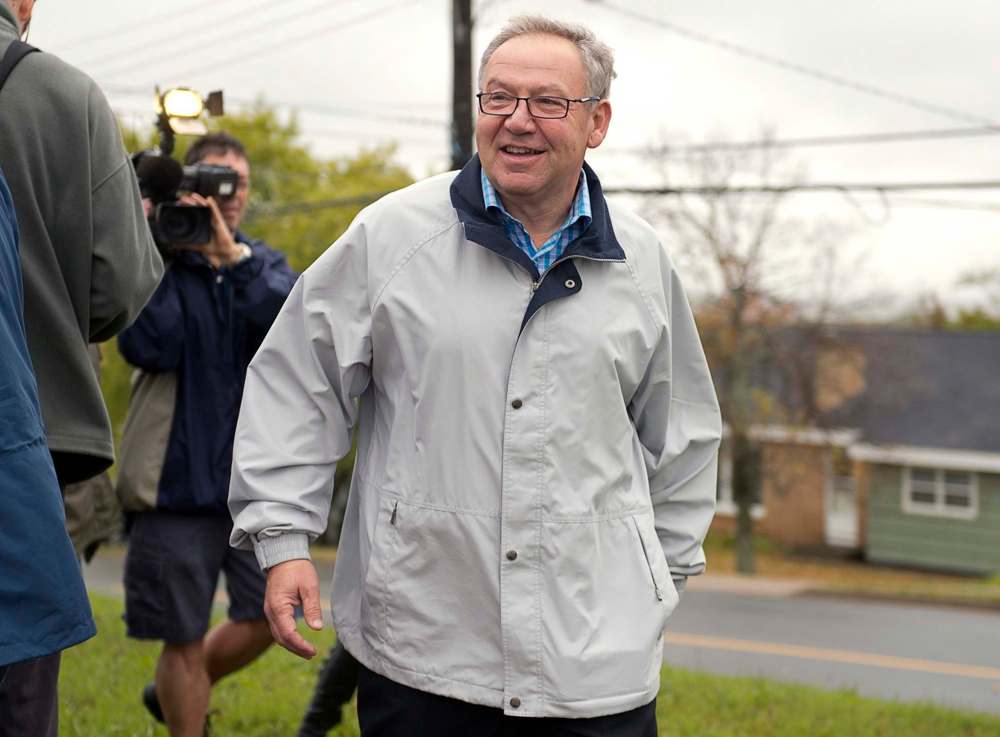
Leo Ezerins, executive director of the CFLAA, said he is encouraged by the recent developments, especially the creation of the advisory board. He looks forward to what the study might lead to and, more specifically, how it could help former players who are suffering from pain get the relief they desperately need.
“The CFLAA has always sought to make a difference by providing support to our alumni, many of whom experienced medical challenges following their athletic careers,” said Ezerins. “In collaborating with MedReleaf we hope to gain further insight into the benefits of medical cannabis in managing chronic pain — insight that could be invaluable to our almost 2,000 alumni members.”
jeff.hamilton@freepress.mb.ca
twitter: @jeffkhamilton

Jeff Hamilton
Multimedia producer
After a slew of injuries playing hockey that included breaks to the wrist, arm, and collar bone; a tear of the medial collateral ligament in both knees; as well as a collapsed lung, Jeff figured it was a good idea to take his interest in sports off the ice and in to the classroom.
Our newsroom depends on a growing audience of readers to power our journalism. If you are not a paid reader, please consider becoming a subscriber.
Our newsroom depends on its audience of readers to power our journalism. Thank you for your support.


